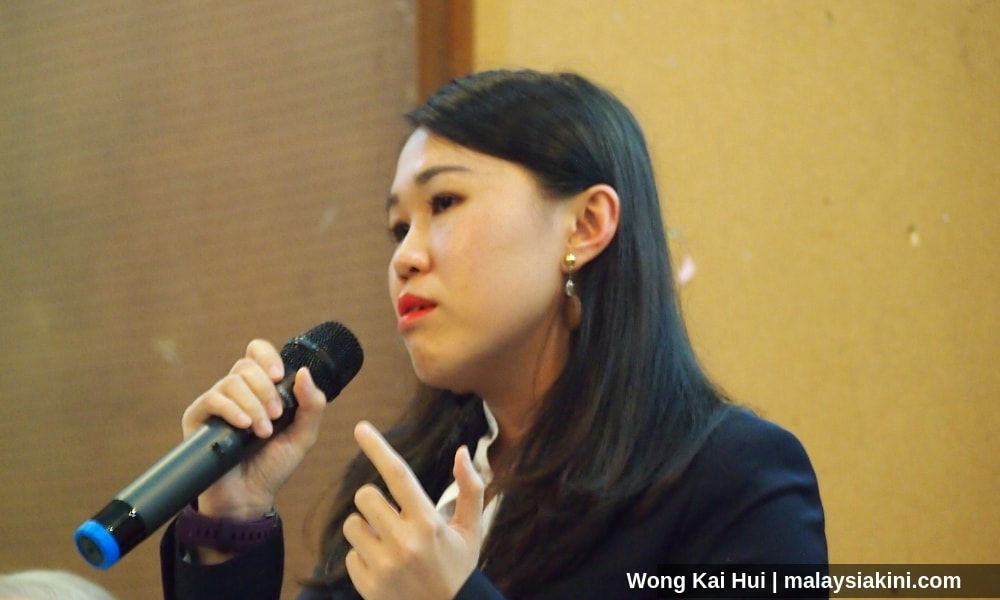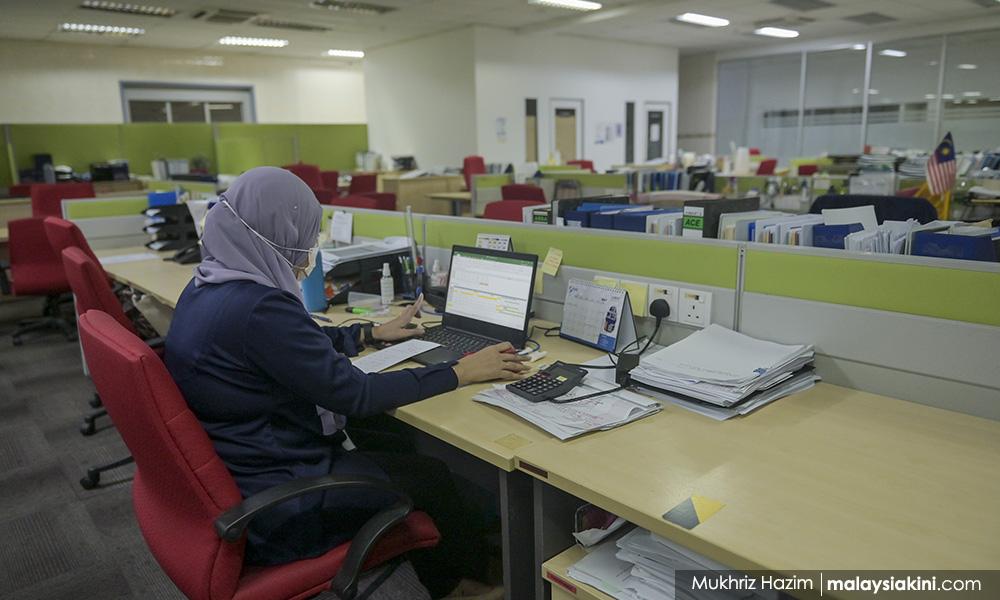Under-representation of women in Parliament and state legislative assemblies could compromise the interest of children and women, according to DAP lawmakers.
This was among the reasons cited by Kapayan assemblyperson Jannie Lasimbang as to why Sabah was unable to push for legal reform to end child marriage despite efforts in the past.
"In Sabah, there is only nine percent of women representatives (seven out of 73 lawmakers) in the state legislative assembly and we do not have any women ministers, only assistant ministers.
"However, this (gender inequality) has become systemic and part of the mindset. There is a lack of understanding on various issues faced by women," she told a webinar organised by Persatuan Kesedaran Komuniti Selangor (Empower) today.
Lasimbang said during her time as a Sabah assistant minister, it was difficult trying to convince her colleagues to discuss the child marriage issue.
"When I was the assistant law and native affairs minister (between 2018 and July 2020), we tried to amend the law to disallow marriage for those below 18 years old.
"Firstly, we have to go through a (state) cabinet discussion, we never made it during my time. We had conducted workshops and we were supported by most of the women (groups) to ensure a change of the law.
"It was very difficult because there were no women at the (state) cabinet level who understood what we wanted to do. And to get to the state legislative assembly, you have to get through the state cabinet level first," she added.
Lasimbang noted that at the time incest cases were also high in Sabah, which was an issue that was hard to address as many families would not cooperate.
"It (incest issue) was so difficult to bring up because of the unsupportive families even though the people frowned on this (the crime)," she said.
In November 2019, it was reported that Sabah was among five states that agreed to outlaw child marriage in an effort pushed by Pakatan Harapan. The other states were Penang, Perak, Selangor and Johor.
Seven states that reportedly disagreed with the legal amendment were Sarawak, Pahang, Terengganu, Perlis, Negeri Sembilan, Kedah and Kelantan.
Lasimbang was speaking at a seminar in conjunction with two reports released on women's freedom of expression in countering sexual and gender-based violence (SGBV). The reports revealed how women and transwomen were subjected to SGBV.

Kluang MP Wong Shu Qi, Subang Jaya assemblyperson Michelle Ng and Seri Delima assemblyperson Syerleena Abdul Rashid also participated in the webinar.
During the webinar, Wong explained it was not easy for the public to see gender reform laws, including gender budgeting to reach the Parliament for the first reading.
"Gender budgeting is very new in Malaysia because the government and civil servants prepare the budget. It is difficult for us to amend unless there is a process (initiated by the government lawmakers) to do so.
"They should concede certain power to the opposition by forming a parliamentary select committee for us to discuss the budget, so we can bring in the idea of gender budgeting," she said.
Syarleena stressed the importance of having women representatives in legislative branches to create a movement.
"The best way is to make sure that both women and men start talking about the discourse over and over again.
"During the Covid-19 pandemic, we have seen many things, including incest and rape. People are getting frustrated because nothing substantial is being done at the federal government level," she said.
With the existing gender inequality, Ng pointed out a country cannot progress if half of its population is not healthily represented.
Apart from adequate women's representation, she believed that top-down platforms and systems need to be built and instilled to champion the gender discourse.
"Selangor also realised the need to create a platform and a system. The menteri besar announced the setting up of a gender focal point within the civil service and agencies," she said, referring to the gender mainstreaming project.
Initiated in March 2020, the project is to encourage gender-sensitive development in the state. The move would allow the state government to achieve a minimum of 30 percent of women's involvement in all sectors and decision making in the future.
"The state government is consciously addressing the mindset as to what we need to do within the civil service to be able to facilitate women's participation," Ng added.

In the report by Empower and Solving Lab Consultancy, 39 out of 60 women interviewed said they experienced sexual gender-based violence in their lives while only 15 of them reported those incidents to the police and NGOs for help.
The participants included sex workers, drug users, migrant workers, refugees and Orang Asli.
The second report, which outlined issues faced by transwomen, said "the group faced widespread restrictions of freedom of expression because of their gender identity and gender expression by their family members, society, employers and religious institutions since childhood".
"The findings also show that trends of discrimination and violence against transwomen in Malaysia have not changed much.
"The increased visibility of transwomen on social media, partly due to the increase of transwomen-owned businesses online and transwomen social media influencers, is often met with backlash and heavy-handed state response.
"The online gender-based violence experienced by transwomen is visible, yet completely unaddressed," read the report.
The report urged for the negative perception of transpeople, reprisals against transwomen, and restriction of their freedom of expression to be addressed. - Mkini




No comments:
Post a Comment
Note: Only a member of this blog may post a comment.